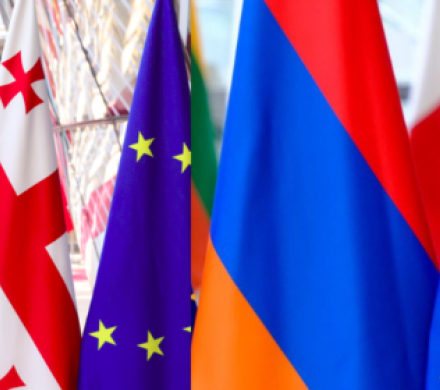Reimagining Deterrence: Towards Strategic (Dis)Suasion Design
Given the increasingly tense posturing of world powers like the U.S., Russia, and China, as well as political volatility across the globe, deterrence has once again become a popular feature of many governments’ strategies. However, the old framework of deterrence that was developed during the Cold War has become outdated in an age of more and more complex international relations. Therefore, new approaches are needed for effective security policies.
To that end, this report argues that rather than framing the strategy of negative influence as deterrence, it is more useful to reconceptualize it as dissuasion, which offers a much more sophisticated perspective from which to consider new tactics. Thus, after surveying historical and current understandings of deterrence, this report offers a new framework of deterrence strategies, better described as compliance-seeking efforts, that includes both dissuasive and persuasive methods.
The report’s main finding is that while deterrence is a popular topic among security experts, their approach to it is growing increasingly obsolete. The traditional deterrent of the nuclear age, fear, is no longer the most effective way to influence behavior. The use of fear and punishment or even just discouragement is not the only way. Thinking through what can be done to dissuade other actors from pursuing undesired courses of action through positive incentives may deserve more attention that it currently receives.
Above all, what is needed is a new dialogue among the security community that focuses on reconceptualizing deterrence for the current global situation, a dialogue that must include input from many avenues such as psychologists, educators, and criminologists to offer varied insights for a more creative, flexible, and better designed approach that produces optimal strategic results in today’s fraught geopolitical climate.
Read the full report here.

The Hague Centre for Strategic Studies
HCSS conducts research and provides advice on geopolitical and defence & security issues to governments, international institutions and businesses. Our research is characterized by a datadriven, multidisciplinary approach, specialist knowledge and a strategic orientation. We combine broad, conceptual knowledge with qualitative and quantitative methods and present our findings in the form of recommendations, strategic explorations and scenario analyses




